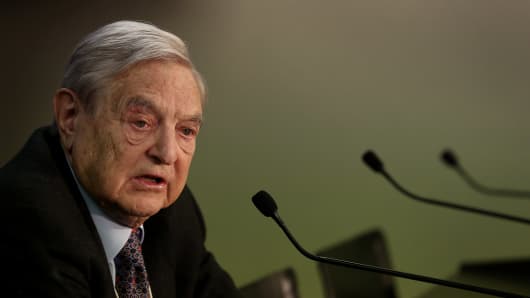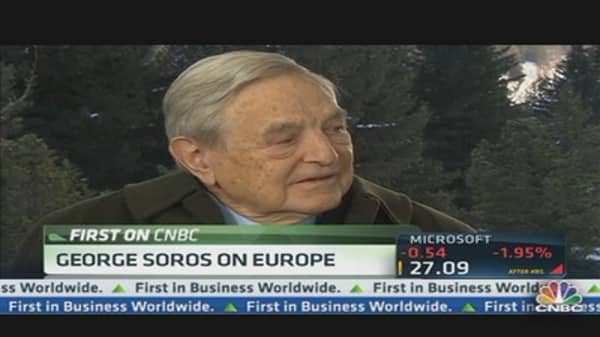He called it a "delicate two-phase maneuver," where first the Fed throws more money at the economy and then as the economy picks up the money needs to be taken back out. But as money comes out of the economy, it could arrest the recovery.
Soros expects interest rates to jump this year as soon as there are clear signs the economy is on the mend.
"It may already have begun," Soros said of the move in rates. "I think it's most likely to happen this year. Once you're past the uncertainty about the budget and investment decisions are made I think you'll see it."
(Read More: Budget Deficit Not Our Only Deficit: Larry Summers)
Soros also pushed back against austerity as a way to deal with excessive debt levels in developed economies. If the economy is falling, then the debt burden is actually increasing, he said.
Soros also warned that the political situation in Europe could get worse over the next two years. "I don't think that Europe can live politically with a situation where there's a center — namely Germany — and countries like Italy and Spain are condemned to perpetual inferiority," he warned.
(Read More: Italy Has Regained Respect: Mario Monti)
He also said there could be a potential currency war brewing. "The rest of the world follows a different recipe from the Germans," Soros said. "Germans believe in austerity and the rest of the world believes in quantitative easing, throwing more and more money at the crisis. And actually that works, in the sense that it avoids a depression."
Soros said that Japan has now switched to more quantitative easing, which is bringing down the value of the yen, whereas the euro is more likely to appreciate since the Eurozone doesn't engage in quantitative easing, Soros said.
"That could push Germany into a potential recession or a slowdown," he said.





